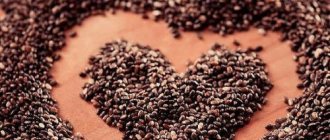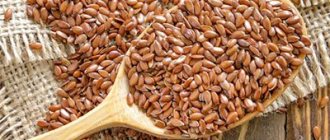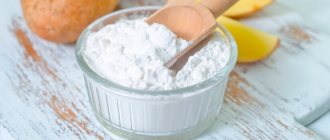Calcium is a vital component for the prosperous existence of humans.
This microelement forms human bones, affects the growth of nails and hair, and improves the condition of teeth.
The element in the body occupies 2% of the total body weight of a person, if there is a shortage of it, the person will be overtaken by health problems.
To prevent this situation, it is recommended to familiarize yourself with calcium-containing products in advance by adding them to your diet.
Table of foods containing calcium
Products rich in calcium can be divided into 2 categories: vegetable and dairy. If you take them daily, the need to take artificial vitamins disappears dramatically.
The body is gradually saturated with the required amount of this element, and the condition of hair, nails and teeth is normalized.
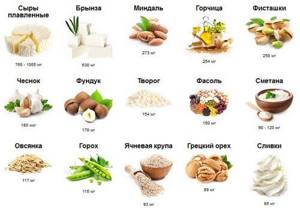
Note! The element is also responsible for the normal functioning of the heart, circulatory system, muscle contractions, regulates the nervous system, and normalizes excretory processes.
Food products contain calcium, which will be necessary to maintain the daily dose of the microelement. The foods that contain the most of it will be discussed as the material unfolds.
Below is a table useful in creating a diet menu:
| Category | Products |
| Vegetables | Pumpkin, broccoli, Brussels sprouts and Chinese cabbage |
| Fruits | Currants, gooseberries, cherries, apricots, oranges: all of these fruits are a source of calcium replenishment |
| Seafood | Most seafood contains this element, with the exception of sardines. The main part contains fish bones |
| Nuts | Almonds occupy the leading place, followed by Brazil nuts and walnuts in terms of element content. |
Fortified drinks
Even if you don't drink milk, you can still get calcium from fortified non-dairy drinks. A cup of fortified soy milk has 30% of the RDA for calcium. Soy milk contains 7 g of protein, making it very similar to traditional cow's milk (37).
Other nut and seed based milks may be fortified with even higher levels of calcium. However, it is not only plant-based dairy products that are fortified. Orange juice can also be fortified, providing your body with up to 50% of the RDA for calcium per glass (38).
Summary:
Plant-based milk and orange juice can be fortified with calcium. A cup of fortified orange juice can provide your body with half your daily calcium requirement.
What foods contain large amounts of calcium?
The foods listed above are a source of the beneficial element, but they contain it in moderation.
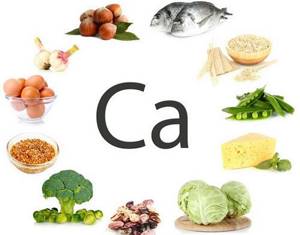
To saturate your body as much as possible and benefit it, you should pay attention to the list of foods that contain calcium in large quantities:
- Dairy products. The main sources are deservedly considered to be cottage cheese, milk, cheese, yogurt, sour cream and kefir. Separately, it is worth highlighting the shells of eggs: they have a huge microelement content. For children with poorly growing nails and problem teeth, it is recommended to crush the shells and add them to dishes.
- Nuts. As mentioned above, almonds, Brazil nuts and walnuts are record holders among other fruits for the presence of calcium. Since nuts contain a large amount of fat, they are better absorbed by the body.
- Seeds. Poppy and sesame are useful for a person suffering from a deficiency of this microelement. By consuming ingredients in moderation, you can diversify your diet. It is especially good to eat poppy seeds and sesame seeds during fasting and prepare dietary dishes using them.
- Wheat. In cereal grains, the amount of calcium is 900 milligrams per 100 grams of product. That is why it is recommended to eat bread made from whole grain flour.
- Soy products. This food is suitable for people on a diet. For example, tofu cheese will be an excellent ingredient in the diet of a person losing weight: it contains the necessary micronutrients, and is considered low-calorie.
- Syrup. A tablespoon contains 170 milligrams of calcium: molasses is recommended to be added to baked goods, replacing sugar.
- Herbs. Most edible greens contain this essential element. Parsley, dill, basil and dandelion leaves contain amounts greater than dairy products.
Foods high in calcium must be present: such foods are especially useful for pregnant women, when the period of gestation is accompanied by a lack of vitamins.
Important! Some of these products can be added to ready-made dishes: for example, poppy seeds are good for baking, and sesame seeds make an ideal salad dressing.
Most calcium-containing foods also contain other vitamins: for example, almonds, greens and seafood are rich in magnesium.
Seeds
Seeds are tiny nutritional powerhouses. Some contain calcium, such as poppy seeds, sesame seeds, celery and chia seeds.
For example, 1 tablespoon (15 grams) of poppy seeds contains 126 mg, or 13% of the RDA for calcium (2).
The seeds also contain proteins and healthy fats. For example, chia seeds are a rich source of plant-based omega-3 fatty acids (3).
1 tablespoon of sesame seeds contains 9% of the RDA for calcium. Sesame also contains other minerals, including copper, iron, and manganese (4).
Summary:
Several types of seeds are good sources of calcium. For example, 1 tablespoon of poppy seeds contains 13% of the RDA for this mineral.
Plant sources of calcium for the body
For those who like to diet, as well as people who do not consume dairy products, it is useful to know which plant-based ingredients contain the most calcium.
These products are also useful when creating a Lenten menu, when the diet should not include animal components.
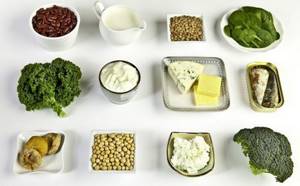
Consider the list of plant sources of calcium:
- Dried thyme contains 1890 milligrams of the element per 100 grams: the plant is used as a seasoning.
- Sesame containing 800 milligrams of the component makes a good topping for salads.
- Basil contains 370 milligrams of the element, which allows it to be used both fresh and dried.
- Almonds make a good snack at work.
- Soy will replace meat products during the fasting period.
- Dried figs will not only saturate the body, but will help improve digestion.
- Laminaria will also increase the iodine content in the body.
To the list of plant foods that increase calcium in the blood, it is worth adding broccoli - it makes excellent casseroles, as well as rhubarb, which serves as an excellent baking ingredient.
Rhubarb
Rhubarb contains high amounts of fiber, vitamin K, calcium and smaller amounts of other vitamins and minerals. It contains prebiotic fiber, which can promote the development of beneficial bacteria in the gut (29).
Both spinach and rhubarb are high in oxalates, so much of the calcium is not absorbed. One study found that only a quarter of the total amount of this mineral present in rhubarb is absorbed by our bodies (30).
On the other hand, the amount of calcium in rhubarb is quite high. So even if you only absorb a quarter, that would be 90mg per 250g serving of cooked rhubarb (31).
You can learn more about the beneficial properties of rhubarb on this page - Rhubarb: benefits and harm to the body.
Summary:
Rhubarb is high in fiber, vitamin K and other nutrients. The calcium contained in rhubarb may not be completely absorbed, but despite this you still get a significant amount of it.
Table of calcium content in dairy products
A diet for osteoporosis often includes a large amount of dairy products: they are the sources of the beneficial element.
This diet also helps children and pregnant women normalize the level of the component in the body.
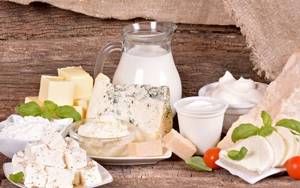
Note! Many people believe that if a pregnant woman or child chews chalk, then he has a calcium deficiency. This fact is refuted by doctors, claiming that in this case there is not enough zinc and iron.
If you are allergic to dairy products, doctors recommend replacing them with medications: for example, calcium powder from the Tianshi company - it is suitable for children from the first days of life.
Let's consider dairy products that have the necessary components for health:
| Product | Calcium content per 100 grams |
| Milk | Milk contains up to 120 milligrams of the element |
| Cottage cheese | Cottage cheese contains up to 95 milligrams per 100 grams of product, which is good for bones |
| Yogurt | 120 milligrams |
| Sour cream | 100 milligrams |
| Kefir | 120 milligrams |
It is worth noting that constant consumption of caffeine, table salt, as well as a lack of protein in the body and smoking significantly impair the absorption of calcium. Eliminate these factors from your life to normalize microelement levels in a short time.
Amaranth
Amaranth is an incredibly nutritious pseudograin that is a good source of folic acid and is very rich in several minerals, including manganese, magnesium, phosphorus and iron.
A 250-gram serving of cooked amaranth provides 117 mg of calcium, which is 12% of the RDA (33).
Amaranth leaves contain even more calcium - a 130 gram serving of cooked amaranth leaves contains 275 mg of calcium, which is 28% of the RDI. The leaves also contain very high amounts of vitamins A and C (34).
Summary:
Amaranth seeds and leaves are very nutritious. A 250 gram serving of boiled amaranth seeds provides the human body with calcium at 12% of the RDI.
Bananas and the digestive system
Bananas contain a lot of pectin, which helps remove toxins from the intestines. In addition, bananas are considered prebiotics, that is, they have a positive effect on the state of intestinal microflora.
It has been found that under the influence of bananas, more digestive enzymes are released, which makes the process of food digestion more intense.
Bananas help fight constipation as they increase intestinal motility.
Bananas are known as antacids that relieve reflux and heartburn. Moreover, bananas are the only raw food product that is indicated for the treatment of stomach ulcers, as it protects the damaged mucous membrane from the effects of aggressive gastric acids.
Optimizing Blood Sugar Levels
Bananas have the ability to maintain blood sugar levels at optimal levels. Not low, but optimal. This ability is associated with many beneficial properties of these fruits, for example, they help withstand intense physical activity, which is impossible when sugar is reduced, as well as when it increases.
Prevention of diabetes, optimization of blood pressure and prevention of cardiovascular diseases are also largely related to the normalization of sugar.
Tryptophan
The amino acid tryptophan, found in large quantities in bananas, is a precursor to serotonin, a brain neurotransmitter that regulates mood. If a person does not suffer from a disorder in the synthesis of serotonin from tryptophan, the introduction of large quantities of this amino acid into the body immediately leads to an increase in serotonin concentrations. Hence the fight against depression and seasonal affective disorder, as well as the ability to eliminate excessive nervous tension and reduce PMS symptoms, which are also very often associated with nervous stress.
Increasing cognitive abilities, combating the effects of insomnia, and facilitating smoking cessation are also associated with serotonin, the additional synthesis of which is provoked by bananas.
Milk
Cow's milk is one of the best and cheapest sources of calcium. One cup (250 ml) of cow's milk contains 276-352 mg of calcium, depending on whether the milk is whole or skim. The calcium in dairy products is also highly absorbable (40, 41).
In addition, milk is a good source of protein, vitamin A and vitamin D.
Goat milk is another great source of calcium, providing 327 mg per cup (42).
Summary:
Milk is an excellent source of highly absorbable calcium. A cup of milk provides the human body with 27 - 35% of the daily requirement of this mineral.







